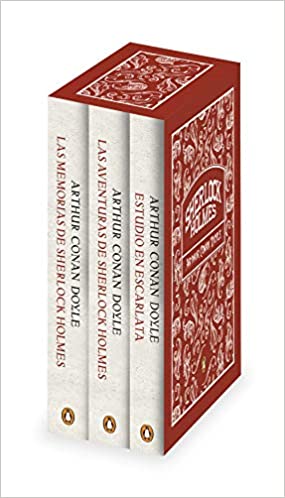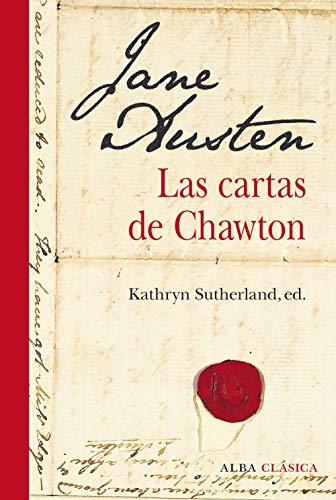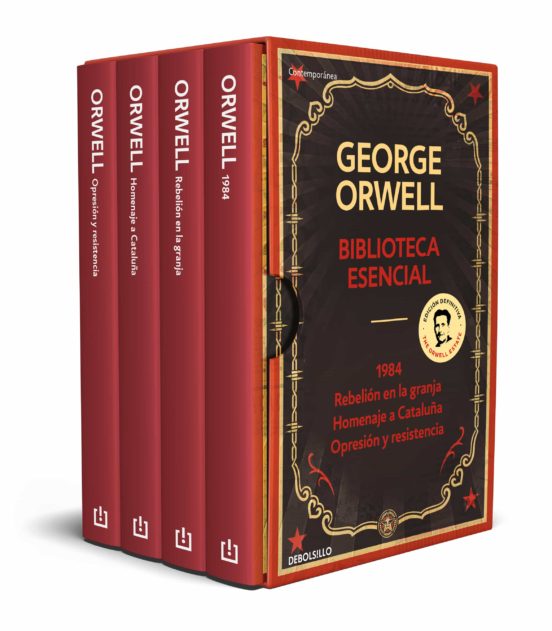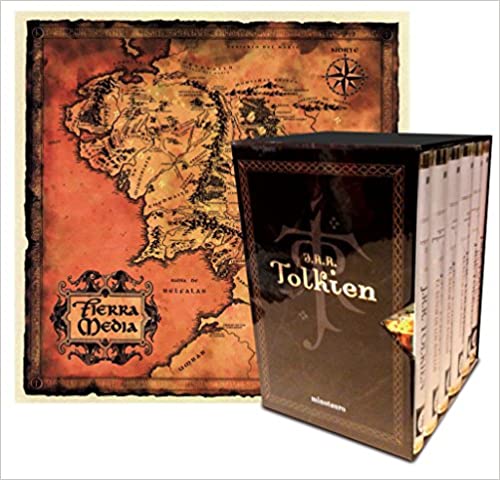Talking about the best English writers, the best Welsh, the best Scots and the best from Northern Ireland would entail 4 independent entries that, having the United Kingdom involved, can be made much easier, beyond possible quarrels between the nations that make up said kingdom.
Because more than despite one or the other, cultural references become more noticeable on nearby islands where symmetries multiply and social and human relationships become closer. Not to mention, of course, the scenery, the weather and many other aspects that influence the creative imprint of any author.
From England, Scotland, Wales or Northern Ireland, great feathers in a variety of genres have come and continue to come to us. Creativity in the mists of the North Seas. Inspiration that aroused the police genre as such but that also manifests itself in many other plot currents...
Top 10 Recommended British Writers
Agatha Christie
There are privileged minds capable of posing a thousand and one plots with their corresponding mystery without disheveled or worn out. It is indisputable to point to Agatha Christie as the queen of the detective genre, the one that would later branch out into crime novels, thrillers and others. Little more can be said about this author except the strong recommendation to read her.
She alone, and without the great help of all the information that flows today on the network, built around 100 novels with so many enigmas made available to universal characters like Miss Marple or the unsurpassed Hercule Poirot. Police novels with a tendency to mystery and enigmas. Stories staged here and there, thanks to his knowledge of so many parts of the world through his travels.
Arthur Conan Doyle
Sometimes the literary character transcends his own author. It happens in few cases, those in which the popular imagination adopts this character as a fundamental reference, regardless of whether he is a hero or an anti-hero. And that circumstance is notoriously palpable in the case of Arthur Conan Doyle and Sherlock Holmes. I am sure that the profane of the literary recognizes the good of Holmes without remembering his creator. It is the magic of literature, the immortality of the work ...
Another remarkable nuance of Arthur Conan Doyle is his actual medical professional. In the case of Spain, other writers such as Pio Baroja landed in literature as doctors, an allegory of the encounter of letters with science. But the really curious thing is that the issue of medical writers is not an exception, since Chekhov but also Michael crichton, many doctors have ended up jumping to literature as another way of focusing interests and concerns. Here below you have an interesting pack of recent edition…
Focusing on Conan Doyle, the truth is that his Sherlock Holmes is very much a doctor who dissects reality in search of the resolution of the crime, like the beginnings of a nineteenth-century CSI. Sherlock Holmes caught on in the readers of his time (and in part continues to do so today) due to the conjunction between the shadows of the esoteric and the lights of reason, as a true dichotomy of a world emerging towards modernity and science but still it retains links with the obscurantism of earlier times of humanity.
In that balance between good and evil, in that space of coexistence between realism and fantasy, Arthur Conan Doyle he knew how to create a character that would survive all time, reaching today as one of the most remembered and reproduced characters in world history. Elementary, dear Watson ...
Jane Austen
To get to know Jane Austen in depth, nothing better than this interesting compilation of her letters. Some missives that contextualize his struggle and his firm will, even beyond his own literature:
And already focusing on the life and work of Jane AustenNot by re-influencing certain issues does it end up saturating the evidence. Because being a woman and a writer is normal today, to such an extent that it would seem aberrant to think otherwise. But back between the eighteenth and nineteenth centuries, a woman's ability to write books would be considered limited to folklore or some kind of inconsequential pink story. Despite the obviousness that more and more women wrote ...
The case of Jane Austen was another breaking point for the moral dam of the masculine in the face of all intellectual interference. Perhaps it was not so much so in his years of life and probably neither was it because of the abrupt break in form and subject matter, but it was in the immediate subsequent recognition and its undeniable quality forged in unequal conditions.
In addition, it must be considered that thanks to family support, a certain financial comfort and popular acceptance, Jane was able to write a variety of stories and novels. And so Jane was able to leave a good example of her ability to enter a manners almost magical, existentialist at times, always critical and transcendental in that unveiling intention of imposed, corseted realities, necessary for the system of principles.
And despite this, despite Jane's awareness-raising intention, she continued with her work without any hindrance from the patriarchal system that could have detected that desire to awaken consciences. The background of love, which should have been understood as the intention of that woman who wrote, would appease the intellectuals of the time, convinced that they were reading love novels ...
Ken follett
beyond one Pillars of the Earth trilogy that made him known worldwide, delve into the literary work of Ken Follett It means discovering a multifaceted author, capable of crossing genres with the same solvency. Always with the same ability to catch the reader with great plots masterfully woven through its vivid characters. All this with a vast knowledge of the subject in which he introduces us.
Follett himself had already explained it in an interview. Diagrams, blackboards and indexes before starting to write and during the writing itself. It is not that it seems to me the best method, but the truth is that Follett has it all well planned so as not to fail. You probably won't have any unfinished novels hidden in your drawer. A methodical type for infallibly constructed works. Healthy envy in the part that touches me as a frustrated writer insofar as he is able to cling to something so systematic at the same time that his characters seem so natural, so real, so plausible in the midst of their evolution previously analyzed in detail ...
George Orwell
Political fiction, to my mind, reached its peak with this sort of grim-looking but determined character. A writer who hid behind the pseudonym of George Orwell to leave us anthological works with large doses of political and social criticism. And yes, as you hear, George Orwell is just a pseudonym for signing novels. The character himself was really called Eric Arthur Blair, a fact that is not always remembered among the particularities of this author who lived through the most turbulent years in Europe, the first half of a twentieth century flooded with blood.
Here is a complete volume with the best of George Orwell…
From science fiction to fable, any genre or narrative style can be suitable to convey a critical notion about politics, power, war. The narrative for Orwell seems like one more extension of his active social positioning. Good old George or Eric, whatever you want to call him now, would be a constant headache for every political objective that stood between eyebrows, from the foreign government of their own country and its increasingly outdated colonizing imperialism to the economic powers. in the midst of a process of social engulfment, and without forgetting the nascent fascisms of half Europe.
So reading Orwell never leaves you indifferent. Explicit or implicit criticism invites meditation on our evolution as a civilization. They share this honor of political criticism as much Huxley as bradbury. Three fundamental pillars for viewing the world as a dystopia, the disaster of our civilization.
J. R. R. Tolkien
The consideration of literature as a work of creation acquires in Tolkien an almost divine character. JRR Tolkien ended up being a God of literature while his imagination ended up materializing one of the most powerful general imaginaries in world literature. It is about reaching the Olympus of fantasy in a narrative cosmos that addresses the epic from the construction of a world that also starts from the everyday. Unique characters and new cultures brushed precisely to make them credible, tangible and finally empathetic in their abysmal remoteness from this world.
As I say, a narrative cosmos that is a pleasure to contemplate in various cases and collections that try to gather the vast imagination of this author (with maps included on some occasions):
Few authors today worthily follow Tolkien's Creator legacy. Writers among those who stand out Patrick Rothfuss with its alternative worlds with evocations of the great reference and master of the genre.
Because Tolkien's great virtue was the epitome of his overwhelming imagination and his outstanding command of language. Mastering the language for a writer means reaching the metalanguage, that indeterminate space in which the conjugation of words reaches total harmony with imagination and meaning.
Only a prestigious linguist like Tolkien, determined to invent new worlds, could be able to reach that place reserved for geniuses capable of transmitting and moving readers of any generation in an alternative world for which there is always room.
Virginia Woolf
There are writers whose arrival at full lucidity ends up overwhelming them, blinding them with flashes of clairvoyance. Although it is probably not that literature has a perverse effect on the soul of the author. It is rather the opposite, those who search the depths of the soul become writers or artists in order to unravel it all, at any cost.
Virginia Woolf is one of those authors who looked into the depths of the soul ... and if we add to this her condition of woman, in a world still stigmatized by what was dictated by religions and beliefs in which women were an inferior being, less gifted… It all must have been a loathsome sum. Until its saddest end.
But even at its end there was something poetic, immersed in the waters of the River Ouse like a nymph, allowing herself to be invaded by an underwater world to which we naturally do not belong ...
And yet, in life, Virginia showed her great vitality when her spirit was carried away by the winds. Writer and essayist, editor and activist for women's rights, dedicated to love and experimentation towards knowledge. Always consistent and a follower of that heterogeneous current of modernism, conspired to undo the traditional and move towards an almost experimental narrative.
Charles Dickens
A Christmas Carol is a recurring, cyclical work, recovered for the cause every Christmas. Not that it is a masterpiece, or not at least his masterpiece in my opinion, but its character as a Christmas narrative with a moral triumphed and still serves today as an emblem of that transforming intention of this endearing time of year.
But good readers of Charles Dickens they know that there is much more to this author's universe. And is that Dickens did not have an easy life, and that struggle for survival in a society of thriving industrialization and parallel alienation carried over into many of his novels. With an industrial revolution already in place to stay (Dickens lived between 1812 and 1870), it only remained for the corresponding humanization to be included in the process.
So Christmas story maybe it was a literary outlet, an almost childish story but full of meaning, revealing about the profit values of the nascent industrial market.
Robert Louis Stevenson
The nineteenth century, with its clear awakening to modernity in the technological, scientific and industrial, offered an unparalleled opportunity for the conquest of a world that still maintained certain spaces given to obscurantism, to the esoteric...
And in that area of chiaroscuro, literature found a fascinating setting for storytellers of great adventures like Julio Verne or own Robert Louis Stevenson. Between one and the other they occupied the highest narrative levels in a reading world eager for adventures in which modern man faced the still unknown. Verne's great inventions and supposed scientists were combined with Stevenson's magnificent adventure logs, a fundamental tandem to approach this time from the most human perspective with which literature always carries.
Due to his personal health circumstances, Stevenson ended up becoming a traveled guy who precisely gave himself up to the literary mission of travel literature, with that addition of fiction that ended up taking him to the top of the adventure genre.
In his 44 years of life, Stevenson wrote dozens and dozens of books, many of them surviving to this day in reinterpretations for the big screen, for the theater or even for television series.
Ian McEwan
One of the most recognized English writers today is Ian McEwan. His novelistic production (he has also stood out as a screenwriter or playwright) offers us a leisurely perspective of the soul, with its contradictions and its variable phases. Stories about childhood or love, but on many occasions with a point of distortion that ends up trapping the reader in their eccentricity, in their presentation of the strange, in their vindication of the abnormal as part of what we are beyond appearances and conventions.
Since Ian McEwan published his first book of short stories back in 1975, the taste for this nuanced literature has accompanied him at all times, finally composing a library that already has around twenty books.
In addition, he has also lavished on children's narrative proposals, with that ambivalent reading point since adolescence or youth, or to discover new nuances in adulthood, always transmitting an interesting trace of humanity.




